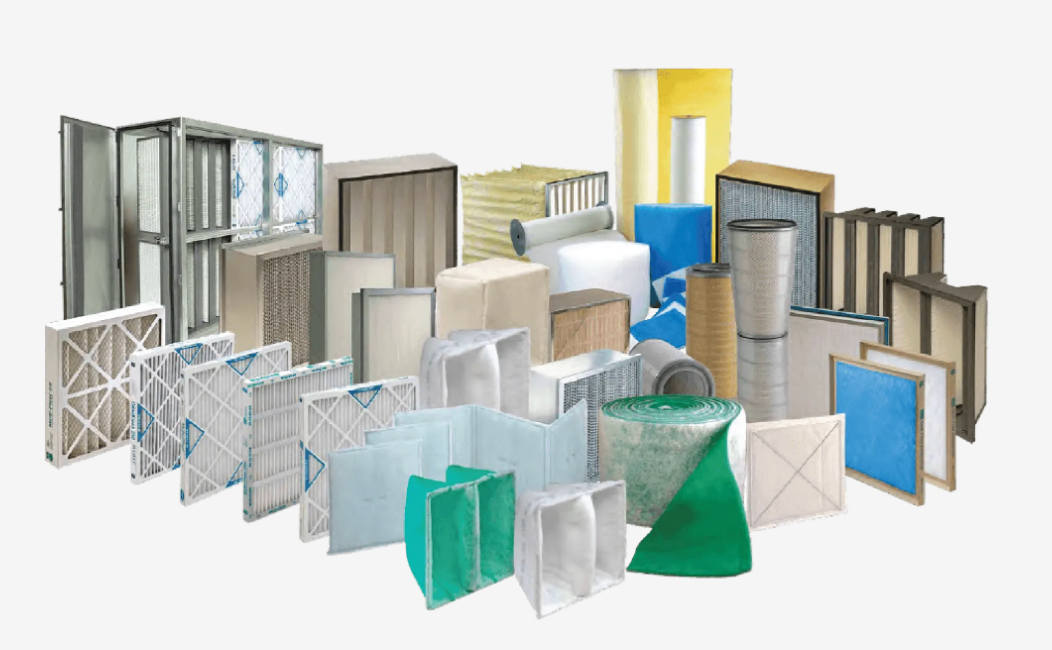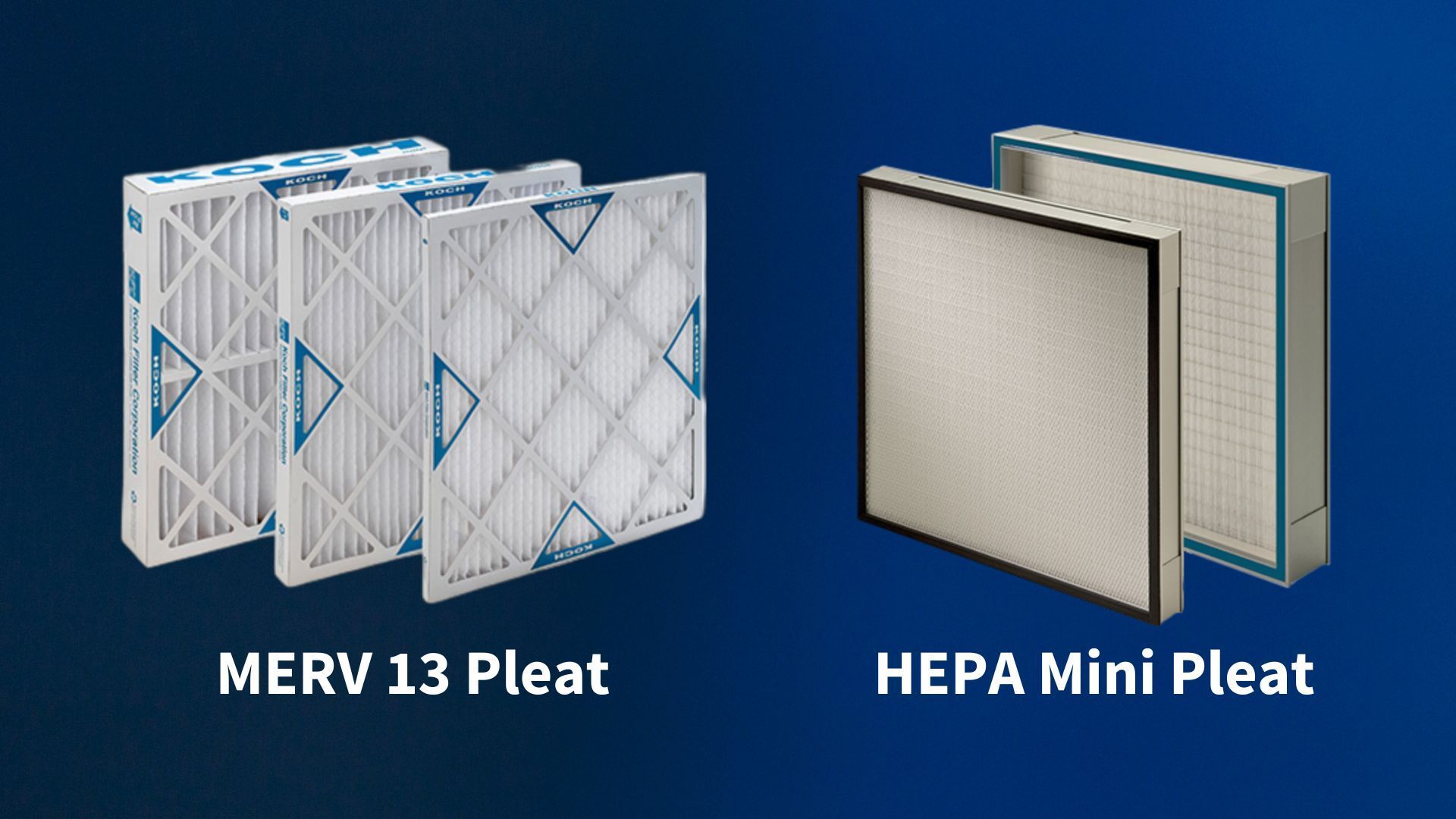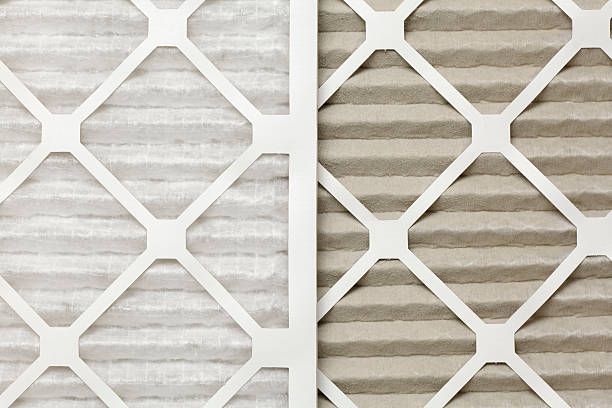Ryan Berkley, CAFS, is president of B&B Filters. As a Certified Air Filter Specialist by the National Air Filtration Association (NAFA), Ryan has completed extensive training and testing in the field of air filtration and has a thorough understanding of air filtration principles, technologies and practices. This high level of filter expertise allows Ryan to provide school districts, universities, hospitals, manufacturers, laboratories, research facilities and others customized, quality solutions to their air filtration needs. Call or text Ryan at: 423.598.9930

Comparing Commercial Air Filter Types
Introduction
Choosing the best filtration system for commercial applications can feel much like sifting through hundreds of tools in your workshop when you're racing against the clock. The stakes are high — after all, the efficiency of your operations and the health of your workspace depend on it.
Industrial engineers know too well that not all filters are created equal. That's why navigating the sea of options requires more than just basic knowledge.
You deserve a clear, comprehensive explanation of the myriad commercial filters. After extensive research and analysis, we've outlined how different types cater specifically to varied needs — from maintaining pristine air quality in hospitals to ensuring contaminant-free air in food processing establishments.
Comparing Commercial Air Filter Types
In comparing different types of air filters for commercial use, it's essential to consider factors such as:
- Efficiency Ratings (MERV, EN779, etc)
- Filter material (e.g., fiberglass vs. synthetic)
- Specific applications like HVAC or air purification systems
Filters with higher MERV ratings, such as MERV 13 or 14, are generally recommended for effective air quality improvement in commercial settings, especially for protecting HVAC equipment and enhancing occupant health.
In today's world, effective filtration is essential not only for maintaining a healthy environment but also for ensuring optimal productivity in commercial settings. Understanding how these filters function can enhance decision-making when it comes to maintenance and selection.
Advanced Commercial Air Filtration Solutions
HEPA Filtration Systems
HEPA (High-Efficiency Particulate Air) filters remain the gold standard in spaces demanding exceptionally clean air, such as hospitals and laboratories. By capturing particles as small as 0.3 microns, HEPA filters drastically reduce airborne allergens and pathogens, creating a safer environment for patients and staff alike. This is especially crucial in healthcare facilities, where air quality directly impacts patient outcomes.
V-Cell Filters
V-Cell filters offer an excellent solution for commercial spaces requiring high efficiency with minimal pressure drop. Their unique V-shaped configuration maximizes filter media area while maintaining compact installation dimensions, making them ideal for facilities with limited space but high air quality demands. These filters excel in capturing fine particles and providing extended service life compared to traditional flat panel filters.
Minipleat Filters
Minipleat technology represents the latest advancement in commercial air filtration. These filters feature densely packed, uniformly spaced pleats that provide superior particle capture efficiency while maintaining remarkably low pressure drop. Their compact design and high dust-holding capacity make them particularly valuable in clean rooms, pharmaceutical facilities, and other environments requiring consistent, high-performance filtration.
Media Filtration Solutions
For environments battling odors and volatile organic compounds (VOCs), media tray filters (often carbon, potassium permanganate, or a mixture) offer specialized protection. These systems utilize media pellets to adsorb gaseous contaminants, making them essential in settings like printing facilities, chemical laboratories, and areas near heavy vehicle traffic. Carbon filtration can be seamlessly integrated with particle filtration systems for comprehensive air quality management.
UV Technology for HVAC Systems
UV technology serves a unique role in commercial air filtration, particularly for maintaining clean cooling coils and preventing microbial growth within HVAC systems. By installing UV systems at strategic points, facilities can significantly reduce maintenance requirements while improving indoor air quality. This technology proves especially valuable in humid environments where biological contaminants pose ongoing challenges.
Making the Right Choice
The selection of commercial air filters should align with your specific application requirements, considering factors such as:
- Required filtration efficiency
- System airflow capabilities
- Energy consumption targets
- Maintenance schedules
- Budget constraints
Quality and Cost Considerations
When evaluating filtration systems, remember that high-quality filters can reduce HVAC energy costs by up to 15%. This significant saving potential demonstrates the value of investing in superior products.
Premium filters typically feature better construction, longer service life, and higher efficiency ratings. While the initial investment might be higher, these characteristics often translate into substantial long-term savings through:
- Reduced energy consumption
- Extended replacement intervals
- Lower maintenance requirements
- Better protection of expensive HVAC equipment
The true cost of filtration extends beyond the initial purchase price. Consider the total cost of ownership, including installation, maintenance, replacement frequency, and energy impact. Often, what appears to be a budget-friendly option can lead to higher operational costs over time.
For commercial facilities serious about air quality and operational efficiency, investing in quality filtration solutions represents a strategic decision that pays dividends in both environmental quality and financial returns.
For personalized recommendations and expert guidance on selecting the right filters, please contact us at 423.775.2932 or email us at info@bnbfilters.com.

Similar Posts


Elevating industry standards with tailored air and fluid filtration solutions since 1992, B&B Filters delivers excellence across the US.







